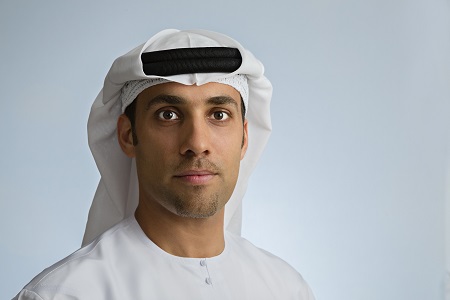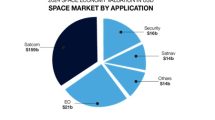
The Mohammed Bin Rashid Space Centre (MBRSC) is hosting the 43rd Annual International Society for Gravitational Physiology (ISGP) Meeting, marking its first occurrence in the Arab world. The event is taking place at the Mohammed Bin Rashid University of Medicine and Health Sciences (MBRU) in Dubai from May 27-30, 2024.
This gathering unites eminent scientists, space agency representatives, young researchers, and students to exchange knowledge on the biological and physiological effects of gravity on living organisms. These insights are essential for addressing the challenges of long-duration space missions and enhancing our understanding of extraterrestrial life. The meeting will also serve as a collaborative platform to announce new research and educational opportunities in this field.
Salem Humaid AlMarri, Director General, MBRSC, said: “Hosting this year’s ISGP Annual Meeting is an extension of our continuing efforts to encourage the exchange of knowledge and foster scientific collaboration. We are dedicated to supporting such efforts and contributing to groundbreaking scientific advancements that propel human progress and expand the horizons of space exploration. We look forward to productive dialogues and impactful outcomes that will further solidify the UAE’s position as a global leader in space research.”
Adnan AlRais, Assistant Director General – Space Operations and Exploration Sector, MBRSC, added: “This meeting represents a distinguished opportunity to elevate international cooperation in gravitational physiology. The gathering not only provides an opportunity for experts to share insights and discuss the latest research but also explore new avenues of investigation with local and international scientific communities. Furthermore, this aligns seamlessly with MBRSC’s overarching mission and commitment to enhancing our understanding of space and its impact on life.”
Prof. Marc-Antoine Custaud, President of ISGP, stated: “The ISGP is delighted to unite the global scientific community for our 2024 annual meeting in Dubai. This year’s assembly stands out with over 100 planned presentations, offering a platform for strengthening existing ties and sparking new collaborations. We are immensely grateful for MBRSC’s invaluable support in making this event possible. The cordial hospitality and meticulously curated programme have already left us impressed. Our profound appreciation extends to MBRSC for their role in co-organising this event and to MBRU for hosting us at their university.”
The four-day event features plenary sessions on topics such as “The Lunar Challenge: Lunar Dust and the Human Being in Moon Mission” and “LBNP as Countermeasure.” Participants will also present papers on various topics, including SIRIUS and isolation studies, cardiovascular system health, and cellular function.
Additional sessions will provide an overview of MBRSC, astronaut Dr. Sultan AlNeyadi’s six-month mission to the International Space Station (ISS), and the Protein Crystal Growth experiment proposed by a research team at MBRU and conducted by H.E. AlNeyadi in space.
The meeting includes the Young Investigator Award, offering a platform for students and young researchers to present their studies in gravitational physiology. Early career scientists have submitted 38 research abstracts for the award, with the top 12, including two from the University of Sharjah, invited to present their work in plenary sessions. These presentations will be judged by a panel of senior scientists from academia, industry, and space agencies, with the award ceremony set for day three of the event.
The ISGP has also established an early career commission to help young scientists connect and get involved in organising award, social events, and other activities. Additionally, a networking event on day two aims to support the growth and connection of young scientists within the field.












Add Comment